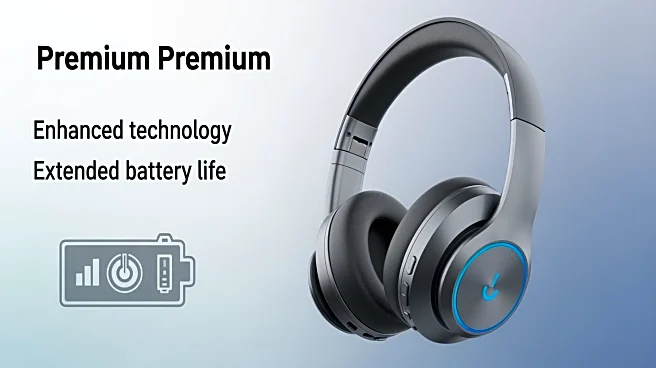What's Happening?
Bose has released the second generation of its QuietComfort Ultra Headphones, featuring impactful upgrades such as lossless audio over USB-C and extended battery life. The new model maintains the familiar design of its predecessor but introduces improvements
in active noise cancellation and power management. The headphones now offer up to 30 hours of listening time with active noise cancellation on, and up to 45 hours with it off. The addition of lossless audio capability allows for higher-quality music streaming, aligning with trends in premium wireless headphones.
Why It's Important?
The enhancements in Bose's QuietComfort Ultra Headphones reflect the increasing consumer demand for high-quality audio experiences and longer battery life in wireless headphones. By incorporating lossless audio, Bose is positioning itself competitively against other premium brands like Apple and Sony, which also offer high-fidelity audio options. This move could influence market dynamics, prompting other manufacturers to adopt similar features to meet consumer expectations. Additionally, the improvements in noise cancellation technology reinforce Bose's reputation as a leader in the audio industry.
What's Next?
As Bose rolls out its upgraded QuietComfort Ultra Headphones, the company may observe consumer feedback to further refine its products. The competitive landscape in the premium headphone market could see intensified innovation as brands strive to offer superior audio quality and user experience. Bose's focus on power management and audio fidelity may set new benchmarks for future headphone models, potentially influencing industry standards.
Beyond the Headlines
The introduction of lossless audio in consumer headphones highlights the broader trend of increasing audio quality in personal devices. This shift may lead to greater consumer awareness and demand for high-fidelity audio across various platforms, including streaming services and personal audio equipment. Additionally, the emphasis on extended battery life and efficient power management reflects growing environmental concerns and the need for sustainable technology solutions.















